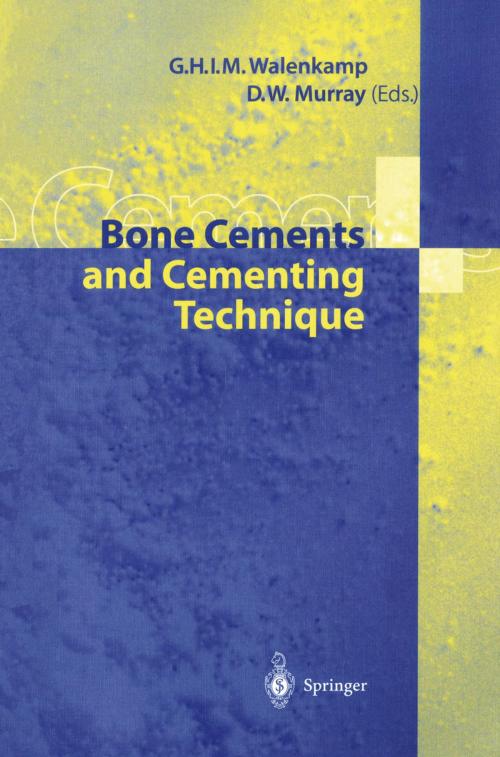Bone Cements and Cementing Technique
Nonfiction, Health & Well Being, Medical, Specialties, Orthopedics| Author: | U. Henze, H.-J. Kock | ISBN: | 9783642594786 |
| Publisher: | Springer Berlin Heidelberg | Publication: | December 6, 2012 |
| Imprint: | Springer | Language: | English |
| Author: | U. Henze, H.-J. Kock |
| ISBN: | 9783642594786 |
| Publisher: | Springer Berlin Heidelberg |
| Publication: | December 6, 2012 |
| Imprint: | Springer |
| Language: | English |
G. H. I. M. WALENKAMP, D. W. MURRAY Since the first use of bone cement, there has been much discussion about this important tool in arthroplasty. Many authors consider the cemented prosthesis as the gold standard when evaluating the outcome of primary prostheses. In a large number of total hip arthroplasties, as registered in the Scandi navian Hip Registers, important differences in revision risks have been docu mented between hospitals. These differences are partly due to the use of di verse cement techniques. In the analysis of data, the influence of these tech niques, as well as the different cement types, is clear. A recent disaster with a newly developed cement also illustrated that the quality of the cement must be assured, and that the introduction of a new material must be carefully prepared and followed-up. The new Palamed cement has been developed by the makers of the well known Palacos and Refobacin Palacos, which appeared to be the best ce ments in the Swedish register. An improvement was noted in slightly better handling characteristics, but the end product is the same as Palacos. As men tioned, this cement will be carefully followed-up in the near future. However, its introduction is a good reason to gather the expertise of some of the lead ing figures in the field in this book. II History of Bone Cements CHAPTER 2. 1 Industrial Development of Bone Cement Twenty-Five Years of Experience w. EGE, K. D.
G. H. I. M. WALENKAMP, D. W. MURRAY Since the first use of bone cement, there has been much discussion about this important tool in arthroplasty. Many authors consider the cemented prosthesis as the gold standard when evaluating the outcome of primary prostheses. In a large number of total hip arthroplasties, as registered in the Scandi navian Hip Registers, important differences in revision risks have been docu mented between hospitals. These differences are partly due to the use of di verse cement techniques. In the analysis of data, the influence of these tech niques, as well as the different cement types, is clear. A recent disaster with a newly developed cement also illustrated that the quality of the cement must be assured, and that the introduction of a new material must be carefully prepared and followed-up. The new Palamed cement has been developed by the makers of the well known Palacos and Refobacin Palacos, which appeared to be the best ce ments in the Swedish register. An improvement was noted in slightly better handling characteristics, but the end product is the same as Palacos. As men tioned, this cement will be carefully followed-up in the near future. However, its introduction is a good reason to gather the expertise of some of the lead ing figures in the field in this book. II History of Bone Cements CHAPTER 2. 1 Industrial Development of Bone Cement Twenty-Five Years of Experience w. EGE, K. D.















